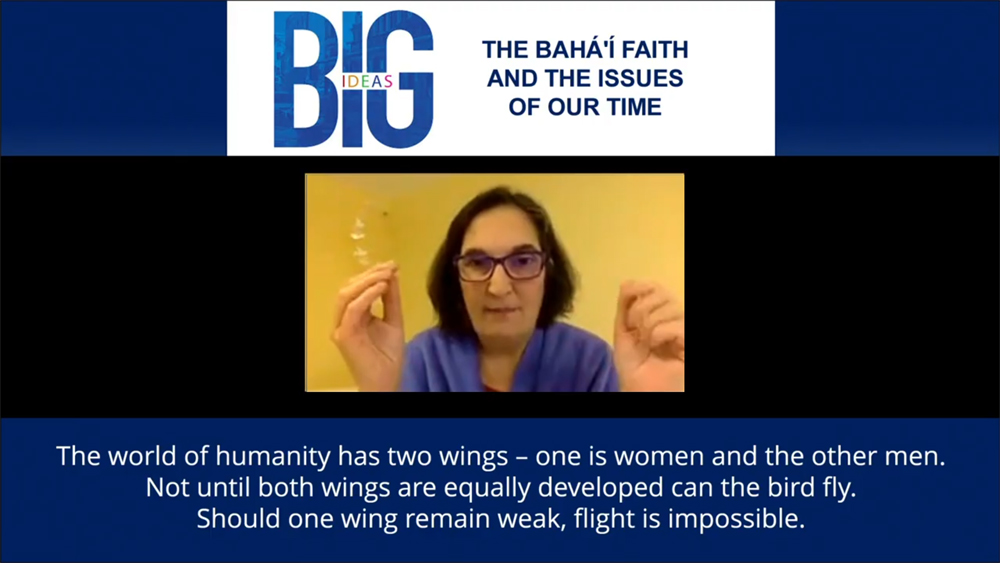 |
 |
|
July 28, 2021 Bahá’í Perspectives on Women and Peacebuilding So it will come to pass that when women participate fully and equally in the affairs of the world, when they enter confidently and capably the great arena of law and politics, war will cease, for women will be the obstacle and the hindrance of it. – ‘Abdu’l-Bahá  Not all of us are so lucky as to know the very moment when we fall in love with our future. Cheshmak Farhoumand-Sims – a married woman with four children who is a senior policy advisor on the counterrorism policy team for Global Affairs Canada, who integrates a gender and intersectional lens on women, peace and security agenda into her work, and who was previous a university professor teaching peace and conflict studies and who trained Afghan women activists, community workers and public servants on international human rights and peace instruments and how to integrate these into the new Afghan constitution to support Afghan women’s participation in the rebuilding of their society – knew when she attended an International Bahá’í Youth conference on the theme Youth Can Move the World in 1985 (propitiously the International Year of Peace) at the age of 15 that she wanted to devote her life to women’s rights and peacebuilding. Did she achieve her dream? She did indeed and is still hard at work on it, which has proven both difficult and rewarding. Two major sources underpin a great deal of Cheshmak’s work: one is the Bahá’í Writings, which are full of guidance and statements on the equality of women and men as a prerequisite to world peace; and the other is the UN Resolution 1325 on Women, Peace and Security published in 2000, whose four main pillars are: women’s participation at all levels in peace process; protecting both women and girls’ rights; incorporating a gender perspective in conflict prevention; ensure that gender is considered in relief and recovery. With apologies to those to who are non-binary and gender-fluid, given that the Writings by its prophet-founder, Bahá’u’lláh, and His son, ‘Abdu’l-Bahá, were revealed and written in the 19th century and early 20th century respectively, she proceeded to discuss not only the importance of women attending at the peace table, but the importance of all people to work towards world peace. Here’s an interesting fact:
Women who are welcomed at the peace table
can help bring a about a peace process that is 35% more likely to be
long-lasting and sustainable. That is a huge percentage given that so
many peace efforts fail precisely because women are not given a voice,
not only in peace negotiations, but even in the creation of refugee
camps, which are woefully inadequate in ensuring their security and
their special needs with regards to their families. |
|
|